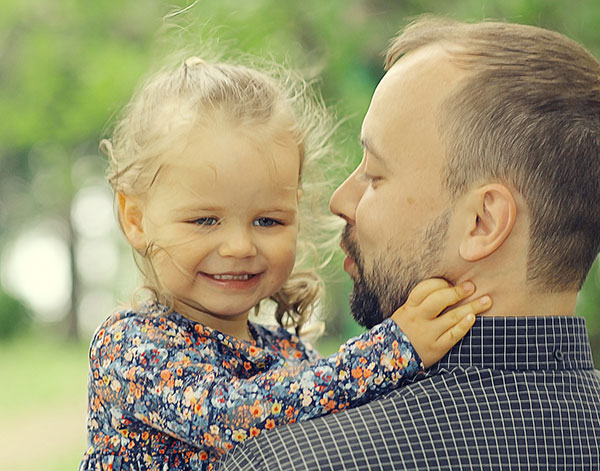|
|
| Upcoming FRPN Webinar: Findings from FRPN-Funded Projects I: Home Visiting, Child Welfare Cases and a Meta-Analysis |
|
Tuesday, October 2, 2018, 12:00 p.m. - 1:30 p.m. EST
How can fathers be engaged in home visiting interventions and what types of outcomes do the interventions inspire? What are the programming needs of fathers whose children are in formal and informal relative care arrangements, and how do fatherhood programs currently deal with them? And what does a review of 26 published and unpublished fatherhood studies in 34 locations tell us about the outcomes they produce?
This webinar will present findings from three Fatherhood Research and Practice Network (FRPN)-funded fatherhood studies. The following practitioners will discuss their implications for programs:
- Jennifer Bellamy, University of Denver, School of Social Work, “Engaging Fathers in Home Visiting: Lessons from a Randomized Controlled Trial".
- Qiana Cryer-Coupet, North Carolina State University, "Understanding the Needs of Fathers with Children in Kinship Care: Father, Practitioner and Caregiver Perspectives".
- Erin Holmes and Alan Hawkins, Brigham Young University, “Caring for their Children: Meta-analysis of Father Education Programs for Nonresident, Unmarried and Low-Income Fathers”.
Register for the webinar here.
|
|
|
|
| New FRPN Subawards |
|
The FRPN has released eight small, invited subawards to researchers to fill gaps in the knowledge base about fatherhood. This brings the total number of FRPN subawards to 21 and the total dollar amount awarded to $1 million. The new subawardees are:
- Lenna Nepomnyaschy and Allison Dwyer Emory, Rutgers University, NJ. Criminal Justice Involvement, State Policies and Fathers’ Involvement with Children.
- Kristie Thomas and Fernando Mederos, Simmons College, MA. Responsible Fatherhood Groups and Domestic Violence Education: An Exploratory Study of Current Practices, Barriers and Opportunities.
- Shawna Lee and Joyce Lee, University of Michigan. Testing the Feasibility of an Interactive Mentor-Based Text Messaging Program to Increase Father’s Engagement in Home Visitation.
- Gary E. Bingham, Georgia State University, Urban Child Study Center, GA. An Evaluation of Real Dads Read: A Barbershop Literacy Intervention.
- Solveig Spjeldnes and Jennifer Shadik, Ohio University, Secondary Analysis of Data Collected by the Ohio Commission on Fatherhood.
- Karen Erich-Garg and Karen Hudson, Temple University, Adoption, Implementation and Consequences of the Inclusion of Fathers with their Families in Homeless Shelters.
- Julia Kobulsky, Temple University, Identifying the Distinguishing Characteristics of Child Protective Services - Investigated Maltreatment by Fathers.
- Jane Venohr, Center for Policy Research, Denver, CO. Low-Income Provisions of State Child Support Guidelines, Order Amounts and Child Poverty.
|
|
|
|
| Usage of FRPN-Validated Measure in Responsible Fatherhood Programs |
|
The Co-Parenting Relationship scale is a validated measure created by the FRPN that is available for free in both English and Spanish. This scale was developed specifically for low-income, nonresident fathers and looks at a variety of co-parenting domains, including alliance, gatekeeping and undermining.
The measure has been employed in several FRPN-funded evidence-based studies, such as the DAD MAP evaluation conducted by the Center for Urban Families in Maryland and a randomized controlled trial of the TYRO Dads fatherhood program conducted by The Ridge Project in Ohio. The use of this measure allowed researchers to determine whether the respective program effectively addressed and impacted co-parenting, and to provide suggestions for how to better strengthen the co-parenting relationship.

|
|
|
|
Contact Us to Learn More
FRPN Co-Director Jay Fagan, PhD | Professor, Temple University School of Social Work

© 2018 Fatherhood Research & Practice Network. All rights reserved
The Fatherhood Research and Practice Network is supported by grant #90PR0006 from the Office of Planning, Research and Evaluation, Administration for Children and Families, U.S. Department of Health and Human Services. The contents are solely the responsibility of the Fatherhood Research and Practice Network, Temple University and the Center for Policy Research and do not necessarily represent the official views of the Office of Planning, Research and Evaluation, the Administration for Children and Families or the U.S. Department of Health and Human Services.
 
|
|


